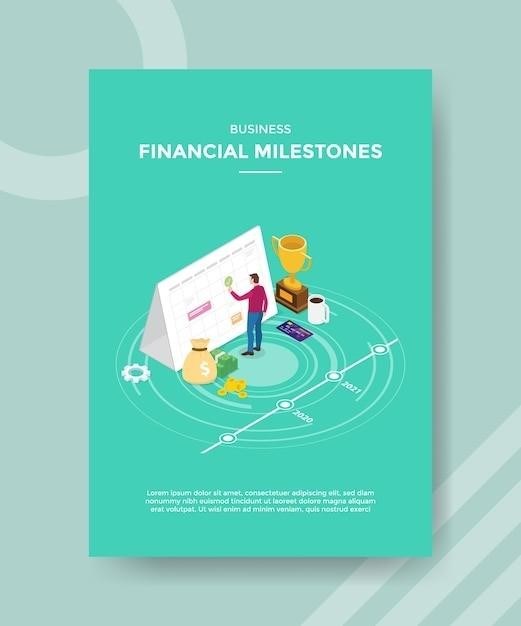Finding Free Personal Finance PDFs
Numerous websites offer free personal finance PDFs, ranging from budgeting guides to investment strategies․ However, carefully evaluate sources for accuracy and credibility before downloading․ Look for reputable organizations, established authors, and recent updates to ensure the information is reliable and relevant․ Remember, free doesn’t always mean best; always verify the information independently․
Legitimate Sources for Free Downloads
Several trustworthy sources provide free personal finance PDFs․ Government agencies, such as the Federal Reserve, often publish educational materials on financial topics․ Reputable non-profit organizations dedicated to financial literacy frequently offer downloadable guides and workbooks․ University extension programs sometimes make available free resources created by their faculty․ Check websites of well-known financial institutions; some offer free introductory materials on budgeting or investing․ Always verify the legitimacy of the source by checking for contact information, a clear mission statement, and evidence of established expertise in personal finance․ Be wary of sources lacking transparency or offering overly simplistic solutions․
Identifying Reliable Personal Finance Resources
Determining the reliability of free personal finance PDFs requires careful scrutiny․ Look for authors or organizations with established credibility in the field․ Check for credentials such as professional certifications (e․g․, CFP, CPA) or affiliations with respected financial institutions․ Examine the publication date; outdated information can be misleading or even harmful․ Look for evidence of thorough research and clear, well-organized writing․ Avoid resources that promote unrealistic promises of quick riches or contain excessive advertising․ Cross-reference information with multiple sources to confirm its accuracy․ A reliable resource will cite its sources and provide evidence-based advice, not just opinions․ Consider the overall tone; reputable sources avoid sensationalism or overly aggressive sales tactics․
Evaluating the Credibility of Online PDFs
Before relying on a free online personal finance PDF, critically assess its source․ Check the website’s “About Us” section for information on its authors and their qualifications․ Look for contact information; a legitimate organization will readily provide ways to reach them․ Beware of websites with excessive pop-up ads or those that push specific products aggressively․ Examine the PDF itself for grammatical errors, inconsistencies, or biased language․ Cross-reference key facts and figures with other reliable sources to verify their accuracy․ A credible PDF will be well-organized, clearly written, and free of sensational claims․ Pay attention to the overall tone; avoid resources that promote get-rich-quick schemes or use fear-mongering tactics․ Consider the website’s design and security; a secure site will typically use HTTPS․ Remember, a thorough evaluation is crucial to ensure the information you’re using is trustworthy and reliable․

Understanding the Content of Free Personal Finance PDFs
Free personal finance PDFs often cover budgeting, saving, investing, debt management, and retirement planning․ However, their scope is usually limited, and they may lack the depth of paid resources․ Always supplement free materials with professional advice․
Common Topics Covered in Free Resources
Many freely available personal finance PDFs delve into fundamental financial concepts․ Budgeting and expense tracking are frequently featured, often including downloadable worksheets or templates to aid users in organizing their finances․ Saving and investing strategies are common themes, with explanations of various accounts, investment vehicles, and risk tolerance․ Debt management is another popular topic, often offering advice on paying down credit card debt, student loans, or other forms of borrowing․ Retirement planning is frequently addressed, exploring different retirement accounts (like 401(k)s and IRAs) and savings strategies․ Finally, many free resources cover basic financial literacy, such as understanding credit scores, interest rates, and the importance of financial planning․ The level of detail, however, can vary significantly․ Some PDFs offer only introductory information, while others may delve into more nuanced strategies․
Limitations of Free Personal Finance Materials
While free personal finance PDFs offer readily accessible information, several limitations exist․ The information presented might be overly simplified or lack the depth needed for complex financial situations․ Free resources may not account for individual circumstances, such as specific tax laws or investment goals․ Furthermore, the information may be outdated, as financial laws and regulations change frequently․ The lack of personalized advice is a key constraint; free PDFs cannot replace the guidance of a financial advisor who can tailor strategies to individual needs and risk profiles․ Moreover, the quality of free resources can vary dramatically, with some offering sound advice and others presenting inaccurate or misleading information․ It’s crucial to critically assess the source and author’s credentials before relying on any advice found in free online materials․ Always cross-reference information with multiple reliable sources before making any significant financial decisions․
Supplementing Free Resources with Professional Advice
While free personal finance PDFs can be valuable educational tools, they shouldn’t replace professional financial advice․ Free resources often provide general information, lacking the personalized guidance needed for specific financial situations․ A qualified financial advisor can offer tailored strategies based on individual circumstances, risk tolerance, and financial goals․ They can help navigate complex financial topics, such as retirement planning, estate planning, and tax optimization, which are often simplified or omitted in free materials․ Furthermore, a professional advisor provides ongoing support and accountability, helping individuals stay on track with their financial plans․ The insights gained from a financial advisor can significantly enhance the value of information gathered from free resources, creating a more comprehensive and effective approach to personal finance management․ Consider free PDFs as a starting point for learning fundamental concepts, but always seek professional guidance for personalized financial planning․

Utilizing Free Personal Finance PDFs Effectively
Actively engage with the content, applying the concepts to your own finances․ Create a personalized plan based on the information learned, and track your progress regularly, making adjustments as needed for optimal results․
Practical Application of Learned Concepts
To effectively utilize free personal finance PDFs, actively apply the learned concepts to your own financial situation․ Don’t just passively read; instead, grab a pen and paper and work through the examples provided․ If the PDF offers budgeting worksheets or templates, use them! Tailor the advice to your specific circumstances․ For instance, if a PDF discusses investment strategies, research the recommended options to see if they align with your risk tolerance and financial goals․ If a section details debt reduction methods, calculate how long it will take you to pay off your debts using the suggested strategies․ The more actively you engage with the material, the more beneficial it will be․ Don’t be afraid to experiment with different methods and find what works best for you․ Remember, consistency is key; even small changes implemented consistently can lead to significant long-term improvements in your financial health․
Creating a Personalized Financial Plan
Free personal finance PDFs often provide frameworks for creating a financial plan, but remember to personalize it; Start by setting realistic, measurable, achievable, relevant, and time-bound (SMART) goals․ These goals should align with your individual circumstances and aspirations․ Are you saving for a down payment on a house, planning for retirement, or aiming to pay off student loan debt? Define these clearly․ Next, create a budget that reflects your income and expenses․ Track your spending meticulously to identify areas where you can cut back․ Allocate funds towards your goals, ensuring that your plan is sustainable and flexible enough to adapt to unexpected expenses or changes in income․ Regularly review and adjust your plan as needed, perhaps annually or even quarterly, to ensure it remains relevant and effective․ Remember that a personalized plan is a dynamic tool, not a static document․
Tracking Progress and Making Adjustments
Once you’ve established your personalized financial plan using insights from free personal finance PDFs, consistent monitoring is crucial․ Regularly review your budget and track your progress towards your goals․ Utilize spreadsheets, budgeting apps, or even a simple notebook to record your income, expenses, and savings․ Compare your actual spending against your planned budget to identify any discrepancies․ If you consistently overspend in certain areas, analyze the reasons and adjust your budget accordingly․ Life throws curveballs; unforeseen circumstances such as job loss or medical emergencies may necessitate modifications to your plan․ Don’t be afraid to adjust your goals or allocate funds differently․ The key is to remain adaptable and proactive in managing your finances․ Regular adjustments ensure your plan remains relevant and effective in navigating the ever-changing financial landscape․
Risks and Considerations of Free Online Resources
Free online resources, while helpful, may contain outdated, inaccurate, or biased information․ Always verify information from multiple credible sources before making financial decisions․ Beware of scams and phishing attempts disguised as helpful guides․
Potential for Inaccurate or Outdated Information
Free personal finance PDFs, readily available online, present a significant risk⁚ the potential for inaccurate or outdated information․ The dynamic nature of financial markets and regulations means that information, even if accurate upon publication, can quickly become obsolete․ Tax laws change, investment strategies evolve, and economic conditions fluctuate․ A PDF downloaded years ago might contain advice that is no longer relevant, or worse, actively misleading․ This is especially true for resources lacking clear authorship or affiliations with reputable financial institutions․ The lack of editorial oversight and fact-checking processes common in professionally published materials further exacerbates this risk․ Readers must critically assess the source’s credibility, publication date, and the presence of any disclaimers regarding the information’s time sensitivity․ Relying solely on outdated or inaccurate information can lead to poor financial decisions with potentially severe consequences, underscoring the need for verification from multiple trustworthy sources․
Privacy Concerns When Downloading Files Online
Downloading free personal finance PDFs from untrusted sources introduces potential privacy risks․ Malicious actors might embed malware or tracking software within seemingly innocuous files․ These could compromise your device’s security, steal personal data, or monitor your online activity․ Websites offering free downloads might also collect your IP address and browsing history, potentially building profiles for targeted advertising or other purposes․ Be cautious about downloading files from unfamiliar or poorly designed websites, those lacking clear privacy policies, or those requesting excessive personal information․ Always scan downloaded files with reputable antivirus software before opening them․ Consider using a VPN to encrypt your internet traffic and mask your IP address, offering an added layer of protection when accessing and downloading files from less-trusted sources․ Protecting your digital privacy is paramount when navigating the online world of free downloadable resources․
Copyright Issues and Legal Implications
Downloading and using copyrighted personal finance PDFs without permission is illegal․ Many personal finance books and guides are protected by intellectual property laws․ Unauthorized distribution or reproduction, even for personal use, can lead to legal consequences, including fines or lawsuits from copyright holders․ While some resources are offered under Creative Commons licenses, allowing for free use with certain conditions, always check the licensing terms before downloading or distributing any PDF․ Respecting copyright is essential; using materials without permission infringes on the creator’s rights and could harm their ability to continue providing valuable resources․ Always look for clear indications of permitted use, such as a Creative Commons license or explicit statement of free usage, before downloading and employing any personal finance PDF found online․ Ignoring copyright laws can have significant legal and ethical ramifications․
